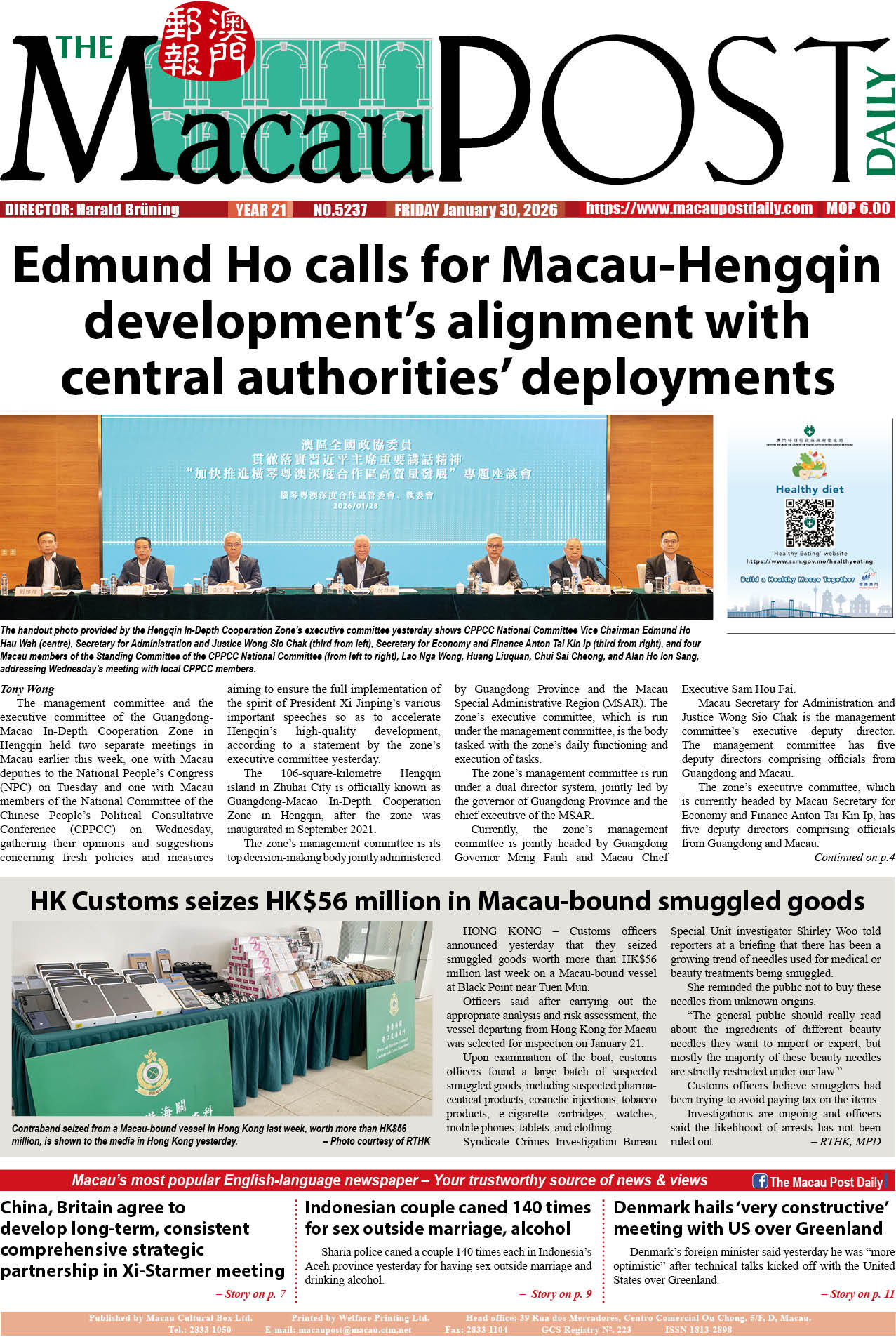Analysis
BEIJING – Nearly 13 million young adults entered exam rooms across mainland China yesterday morning to sit for the college entrance test, or “gaokao” (“higher [education] exam”), a record high number since matriculation resumed in 1977.
The exact number of applicants for this year is 12.91 million, an increase of 980,000 from last year, according to the Ministry of Education. Their exams will last from two to four days, depending on their choice of subjects.
Wu Zongxin said he dreams of studying for a fire-science degree and becoming a firefighter. “I know it could be a dangerous job, but I want to do something significant for society, instead of living an ordinary life,” he said.
Unlike his peers, Wu needs hearing aids to listen and communicate, the aftermath of a severe infection at childhood. But that never stopped him doing well at school. He is to graduate this summer from Zhizhen High School in Hengshui, a city in Hebei province known for its students’ good performance in the gaokao exams.
Wu likes to think positively about his hearing loss. “At the end of the day, all I need to do is to remove my hearing aids and go to bed,” he said. “No one can disturb my sleep.”
His teacher Chen Jie described him as “an intelligent young man with a strong character.”
“He wants to be treated as a healthy, normal student,” Chen added.
Yet Wu is relieved that he is exempt from the English listening test, in line with the Ministry of Education’s special policy for hearing-impaired students. “I really worried about this part of the exam,” he said. “Now I’m more at ease.”
STRESS MANAGEMENT
The mainland’s college admission rate has seen a significant rise in recent years. Even so, the gaokao is widely recognized as one of the world’s toughest college entrance exams, mainly because admission relies primarily on exam results, rather than an overall estimation of a student’s academic performance over a period of time.
Fan Xuanzhi, a candidate in Beijing, managed her stress well. She turned down her parents’ offer of a hotel room next to the test center, insisting instead on sleeping in her own bed. She also made a short video to thank her parents for their love, which she presented to them on Tuesday night.
Many other students still needed a pat on the shoulder from teachers and parents.
A teacher at the Hengshui No. 13 Middle School made a giant piece of wall art out of 2,023 used pen refills collected from his students since they started their final year at high school in September. Chen Chen, a biology teacher, made a sailboat by gluing together the refills and pieces of wood. The project took him three months.
“This represents my best wishes for my students in the class of 2023,” Chen said in an interview with Xinhua. “I hope they will all be brave and chase their dreams.”
The artwork, 3.5 meters long and 1.8 meters tall, came as a pleasant surprise for the students when it appeared in the common area of the school building on Sunday evening. Many wrote down their names, dream universities and gaokao target scores in the blank space.
“I cannot believe that we used so many pen refills over the past months,” said He Yubing, a student in Chen’s class. “The hard work will pay off.”
A HELPING HAND
Whole civil society seems mobilized to give a helping hand to the gaokao candidates.
In Beijing, 58,000 candidates are taking the gaokao exams at 100 test centers between yesterday and Saturday. City authorities have banned construction sites from working at night, while those within a 500 meter radius of any test center will also suspend operations during the day.
Drivers have been told to refrain from blowing horns near test centers, and approximately 800 traffic police officers patrol the streets on motorcycles carrying an extra helmet, ready to shuttle any test-takers that have been stranded due to traffic jams.
At some secondary schools, when the class of 2023 start the exams, students in the lower years are dismissed, taking their courses online from home or leaving for school trips.
In Wushan, a remote county in the municipality of Chongqing, some 100 students from a rural high school got an unusual bus ride to their test centers in the county seat on Tuesday, a day before the exam started.
It was an unusual ride because for decades, locals chose to travel by boat. A trip to the county seat along the narrow, zigzagging mountain road used to take two hours, whereas a new expressway completed last fall has shortened the travel time to 30 minutes.
In the city of Xingren, Guizhou province, 12 carsick students got a special favor from local police: a ride on an open police jeep. “I felt safe and secure as the wind blew on my face,” said Wang Guilan as she arrived at the test center.
In Guizhou’s provincial capital Guiyang, a fleet of 500 taxis and private cars offer free rides to gaokao candidates.
STUDYING FOR A JOB
The Ministry of Education incorporated 21 new subjects into the list of undergraduate programs last year, and many universities have subsequently readjusted their curriculums to help this year’s new students meet the demands of the job market after four years of study.
The new subjects include earth system science, artificial intelligence (AI) and robotics, big data and blockchain engineering, agricultural sciences, special education and several multidisciplinary studies degrees.
Xizang Minzu University, a university for Tibetan ethnic studies based in Shaanxi province, has added a degree in international journalism and communication for this year’s new students.
“We aim to train professionals to tell stories about Tibet’s economic and social development, and to share China’s experience with the world,” said Jin Shi, vice dean of the university’s school of journalism.
Nanjing Normal University of Special Education has launched two new programs, including education for autistic children and accessibility studies, as the country increases its awareness of the well-being and experience of people with disabilities.
Earlier this year, Kang Yi, head of the National Bureau of Statistics, said that the mainland’s job market expects an influx of 11.58 million graduates from universities and colleges this year, placing pressure on the job market. However, with the economy recovering and hiring demand rising, job openings are expected to increase, he added. – Xinhua

Students leave after their first exam during the first day of the National College Entrance Examination (NCEE), known as “gaokao”, in Nanjing, capital of Jiangsu province, yesterday. – Xinhua





